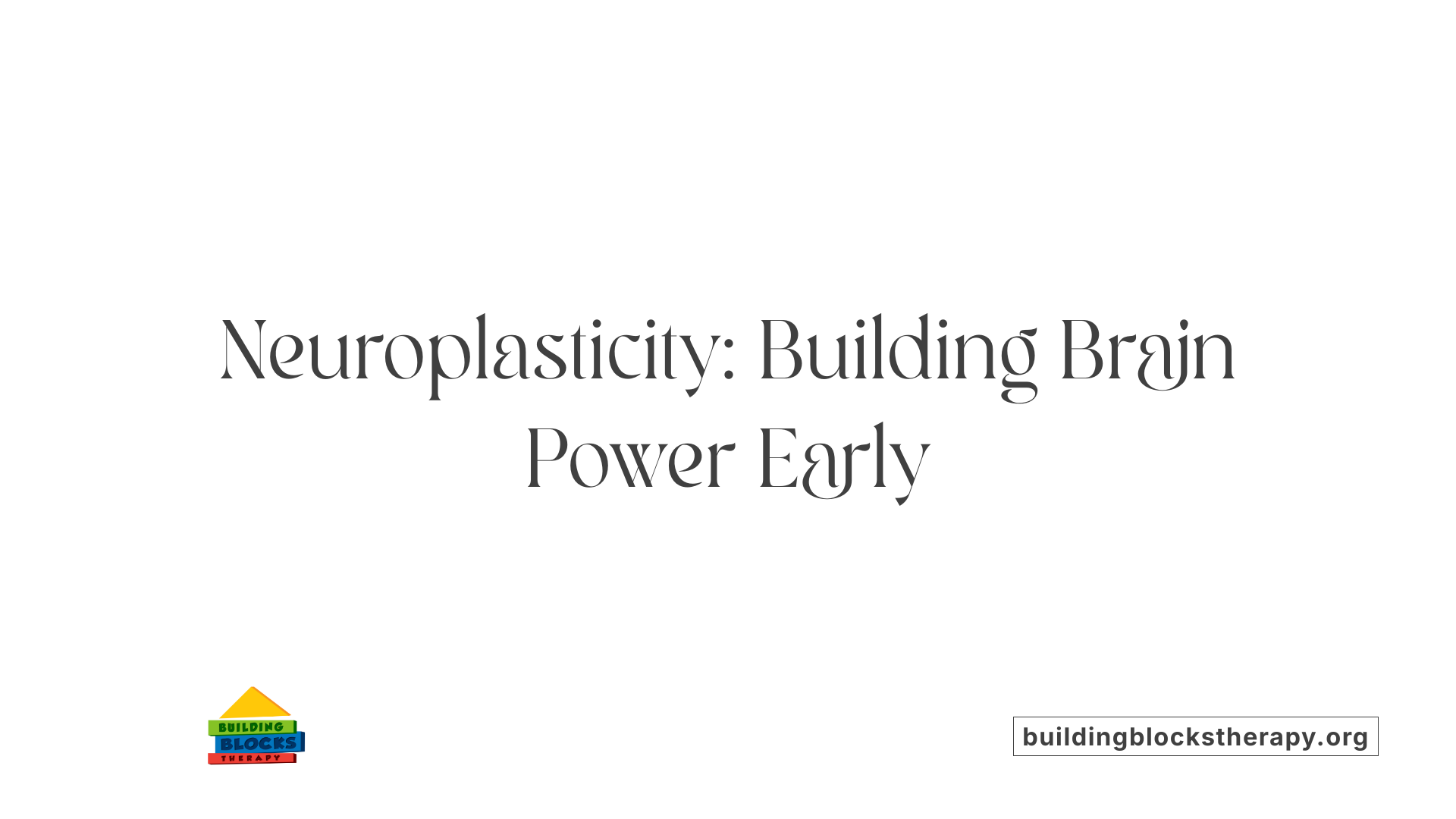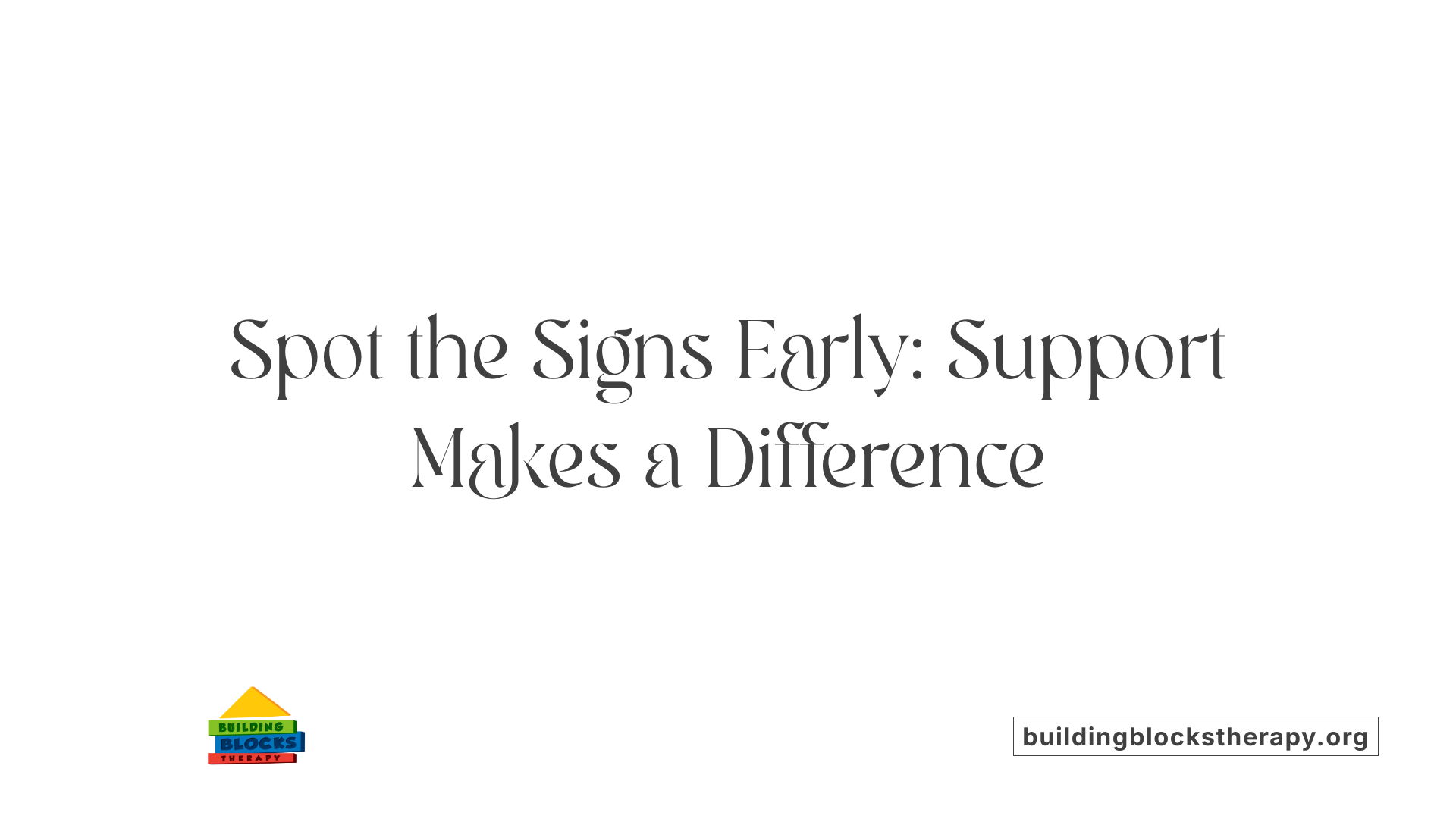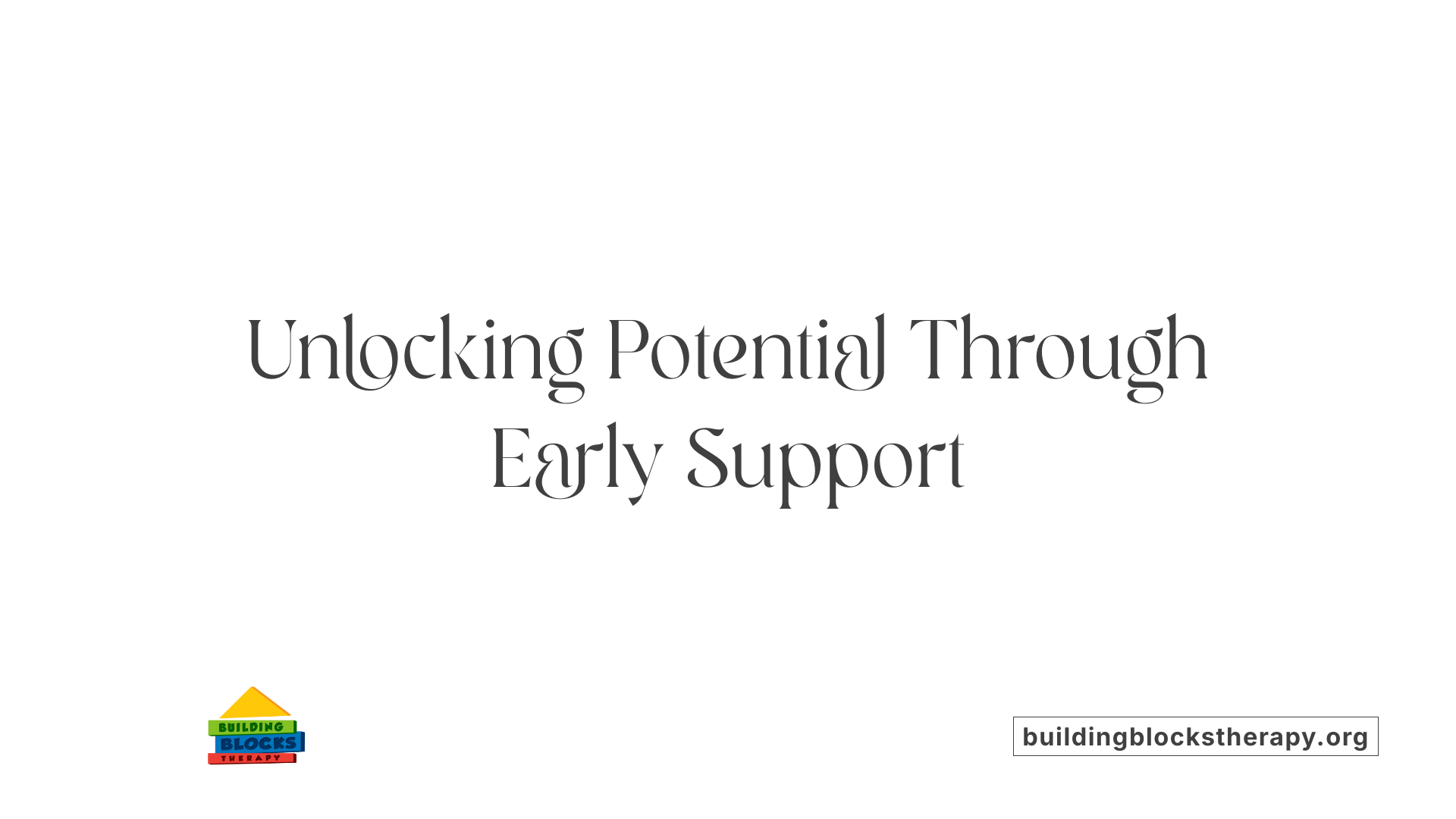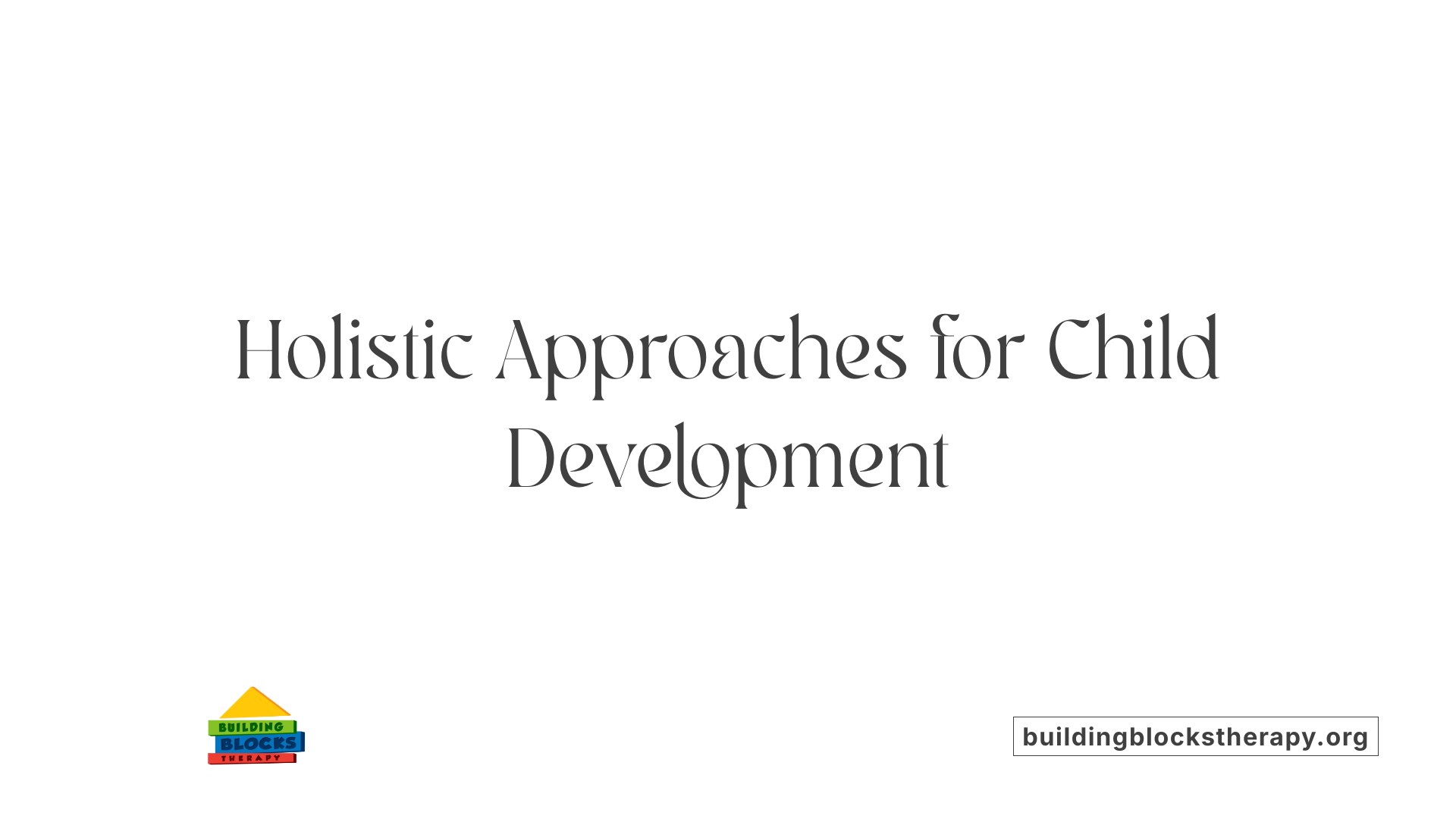Understanding the Critical Role of Early Identification in Child Development
Early identification of developmental and mental health issues is a cornerstone of effective childhood therapy. Recognizing signs early enables timely intervention, which can dramatically shape a child's future learning, social skills, and emotional stability. This article explores the significance of early detection, strategies for caregivers and professionals, and the profound benefits of initiating support during the earliest years of a child's life.
Neuroplasticity: The Foundation for Early Intervention

Why is early identification of developmental and mental health issues in children important?
Detecting developmental and mental health challenges in children at an early stage is vital because it opens the door to timely intervention. The earliest years, especially the first three, are critical for brain growth due to the high adaptability of neural connections, a phenomenon known as neuroplasticity.
By identifying issues early, caregivers and professionals can implement therapies—such as speech, occupational, and behavioral interventions—that help mold a child's developmental trajectory. This early support can prevent problems from worsening, close skill gaps, and prepare children for school more effectively.
Moreover, early diagnosis and intervention lead to long-term benefits, including better mental health, reduced support needs later in life, and an overall improved quality of life. These early steps are essential to help children reach their full potential, fostering healthier, more resilient development that benefits individuals, families, and communities.
What strategies can caregivers and professionals use to facilitate early detection and intervention?
Caregivers and professionals can play a significant role in early identification by regularly monitoring a child's development through validated screening tools. These assessments, recommended by organizations like the CDC and the American Academy of Pediatrics, should be conducted at key age milestones.
In addition to formal screenings, ongoing developmental observation within daily routines is crucial. Caregivers should document and note any signs of delays such as speech difficulties, social skill deficiencies, or behavioral issues. These observations help in recognizing red flags early.
Training is another essential strategy. Educating caregivers and professionals about warning signs ensures quicker recognition of potential concerns, prompting timely referrals to specialists. When screening indicates possible delays, accessing comprehensive evaluations by pediatricians, psychologists, or therapists is the next critical step.
Finally, establishing clear follow-up procedures and seamless referral pathways guarantees that children receive the appropriate early intervention services swiftly. This coordinated approach maximizes the benefits of early detection, setting children on a stronger developmental path and supporting their long-term success.
Identifying Red Flags: Signs That Indicate a Child Needs Support
 Recognizing early signs that a child may need support is essential for timely intervention, which can greatly enhance their developmental trajectory. Several indicators suggest the need for further evaluation and assistance.
Recognizing early signs that a child may need support is essential for timely intervention, which can greatly enhance their developmental trajectory. Several indicators suggest the need for further evaluation and assistance.
Some of the most common signs include persistent delays in speech and motor skills. For example, a child who struggles to speak simple words by age two or shows difficulty with tasks like walking or holding objects might be experiencing developmental delays. Similarly, challenges in social interactions, such as limited eye contact, lack of interest in peer play, or difficulty understanding social cues, are important red flags.
Behavioral and emotional challenges often manifest as tantrums, aggression, or defiance beyond what is typical for the child's age. Children who frequently exhibit disruptive behavior, struggle to manage their emotions, or display self-injury behaviors may benefit from early assessment. The presence of hyperactivity, difficulty paying attention, or impulsive actions are notable signs especially related to Attention-Deficit/Hyperactivity Disorder (ADHD).
Another critical indicator involves challenges in peer relationships and social engagement. Problems making friends, avoiding social situations, or misreading social cues can hinder a child's development and social success. Sudden changes in routines or routines, such as losing interest in activities once enjoyed, can also signal underlying issues.
Physical symptoms without medical explanation, like recurring headaches or stomachaches, can sometimes be linked to emotional stress, anxiety, or other mental health concerns that require attention.
An example table summarizing these signs is as follows:
| Sign or Symptom | Developmental Area | Additional Notes |
|---|---|---|
| Speech delays or motor skill difficulties | Language, Motor skills | A delay beyond typical milestones warrants concern |
| Behavioral outbursts, tantrums, aggression | Emotional, Behavioral | Excessive or persistent issues may indicate developmental concerns |
| Social interaction difficulties | Social skills | Challenges in peer play and understanding social cues |
| Sudden decline in academic or routine performance | Cognitive, Behavioral | Could be emotional or developmental in origin |
| Physical complaints like headaches with no cause | Physical health | Potential signs of stress or emotional issues |
Professionals such as pediatricians, speech therapists, and psychologists look for these signs. Early detection and intervention can utilize neuroplasticity to improve skills through therapies like speech therapy, occupational therapy, and behavioral interventions.
Family involvement is crucial, and addressing these red flags early can prevent minor issues from escalating. Children benefit from personalized, family-centered programs that include collaboration among healthcare providers, educators, and caregivers.
Preventive strategies involve promoting awareness about developmental milestones, offering resources for evaluation, and ensuring that support systems are accessible from birth onward. School-based services and community programs play a significant role, especially since children spend substantial time in educational settings.
In conclusion, being attentive to these signs and seeking early evaluation can lead to better outcomes, higher self-esteem, and improved quality of life for children facing developmental or behavioral challenges. Early intervention transforms potential challenges into pathways for growth, helping children reach their full potential.
The Benefits of Early Support and Its Impact on Development

How does early intervention benefit children's development and mental health?
Early intervention plays a vital role in supporting a child's overall growth and mental health by ensuring they reach key developmental milestones in areas such as speech, language, social skills, cognition, and physical development. The first three years of life are particularly important because the brain is highly adaptable, or neuroplastic during this period. This adaptability allows for more effective reshaping of neural pathways through targeted therapies and activities.
When developmental delays or disorders are identified early, healthcare providers and specialists can initiate tailored interventions that prevent issues from worsening. For example, speech therapy can assist children with language delays, while behavioral interventions may help prevent escalation of behavioral issues such as aggression or self-injury. These early actions not only improve immediate developmental outcomes but also promote emotional and social well-being.
Supporting families through early intervention empowers them with tools and resources to foster a nurturing environment. Children benefit from more consistent routines, positive interactions, and supportive environments that encourage growth and learning. Additionally, early mental health support helps reduce anxiety, behavioral challenges, and social-emotional difficulties, laying a foundation for healthier relationships and better school readiness.
Furthermore, early intervention provides a strong basis for lifelong success. By promoting social and emotional skills early on, children are better prepared to succeed academically, develop resilient coping strategies, and maintain good mental health as they grow. As a result, early support not only transforms individual lives but also benefits communities by reducing future educational challenges, social disparities, and mental health issues.
Investing in early intervention accumulates broad societal benefits, including lower healthcare costs and reduced need for special education services later in life. Overall, early intervention acts as a powerful tool to enhance achievement of developmental milestones, foster mental health, and support children's journey toward becoming capable, confident individuals.
Integrating Services and Supporting Families for Optimal Outcomes

Why is early identification of developmental and mental health issues in children important?
Early detection of developmental and mental health issues is vital because it allows for prompt intervention during the most adaptable phase of brain development—particularly in the first three years of life. During this period, neural connections are highly malleable, meaning that appropriate support can significantly shape a child's developmental path.
Timely identification—including screening for concerns such as speech delays, social skill deficiencies, or behavioral issues—enables healthcare providers and families to implement targeted therapies like speech, occupational, and behavioral interventions. These interventions can prevent minor developmental problems from escalating into more significant challenges, improve school readiness, and foster better social and emotional skills.
Detecting issues early also aids in closing achievement gaps and supports children in reaching their full potential. It can lead to long-term improvements in mental health and reduce the future need for intensive support, ultimately enhancing quality of life. Moreover, early diagnosis helps families understand their child's needs better, reducing emotional and financial stress while creating a nurturing environment for growth.
Family-centered approaches
A family-centered approach is crucial in early intervention strategies. It emphasizes active family involvement, recognizing parents and caregivers as vital partners in the process. By collaborating with families, professionals can tailor interventions that respect cultural values and individual circumstances, leading to more effective outcomes.
Supporting families includes providing education about developmental milestones, encouraging positive interactions, and offering resources that empower them to support their child's growth. Family involvement also enhances communication, social skills, and problem-solving abilities, fostering a stronger foundation for children with or at risk of developmental delays.
Collaboration among healthcare, education, and mental health providers
Integrated services across healthcare, education, and mental health sectors are essential for comprehensive early intervention. Multidisciplinary teams—including pediatricians, therapists, special educators, psychologists, and social workers—collaborate to develop and implement individualized support plans.
Schools play a pivotal role by providing early assessment, tailored learning strategies, and behavioral support within educational settings. Healthcare providers contribute medical and developmental evaluations, while mental health professionals address emotional and psychological needs. This collaborative approach ensures that interventions are cohesive, consistent, and effectively address all aspects of a child's development.
Building strong relationships among these sectors facilitates seamless communication, shared goals, and unified support, helping children overcome challenges and thrive.
Resources and policies to promote early intervention
Effective early intervention requires adequate resources and supportive policies. States and districts should allocate funding for qualified school mental health professionals—including counselors, psychologists, social workers, and nurses—to expand access to mental health services in schools.
Legislative measures are needed to ensure equitable access to services and uphold parity provisions, making mental health care as available and as prioritized as physical health. Policies should promote outreach, education, and training programs for families, professionals, and educators about the importance of early childhood mental health.
Creating a comprehensive continuum of services—from birth to age 21—is essential. This includes screening, diagnosis, treatment, referral, and follow-up, supported by community and school-based programs like the CDC’s 'Learn the Signs – Act Early' campaign or regional initiatives such as the Lanterman Regional Center's 'Early Start' program.
To maximize impact, resources must also focus on building capacity within communities through workforce development, research, and innovative intervention models, ensuring that every child has access to timely, high-quality support.
| Aspect | Description | Additional Notes |
|---|---|---|
| Family involvement | Encourages active participation of families | Critical for tailored, effective support |
| Multi-sector collaboration | Combining healthcare, education, and mental health | Provides holistic and coordinated care |
| Policy support | Funding, legislation, resources | Ensures access and equity |
| Community resources | Programs, training, awareness campaigns | Builds capacity and awareness |
By embedding these approaches into systems serving children, we lay a strong foundation for better developmental, mental health, and educational outcomes for future generations.
Seize the Moment: Improving Child Outcomes Through Early Action
Prioritizing early identification and intervention is essential for transforming children’s lives. When caregivers, educators, and healthcare providers collaborate to recognize early signs and implement timely support, children stand a better chance of reaching their full potential. Investment in screening, training, and accessible services not only benefits individual children but also strengthens families and communities. By embracing a proactive approach, society can foster healthier, more resilient generations equipped to thrive in an ever-changing world.
References
- Why Act Early if You're Concerned about Development? - CDC
- Early Assessment and Why It`s Important - Behavioral Health Clinic
- The Power of Early Intervention in Mental Health: A Pathway to ...
- Early Identification and Interventions for Children with Mental Health ...
- Importance of Early Identification and Intervention
- The Importance Of Early Detection In Intervention Strategies
- What is early intervention?
- DAP: Observing, Documenting, and Assessing Children's ... - NAEYC
- Developmental Monitoring and Screening - CDC
- Guidelines for Developmentally Appropriate Practice in Action






